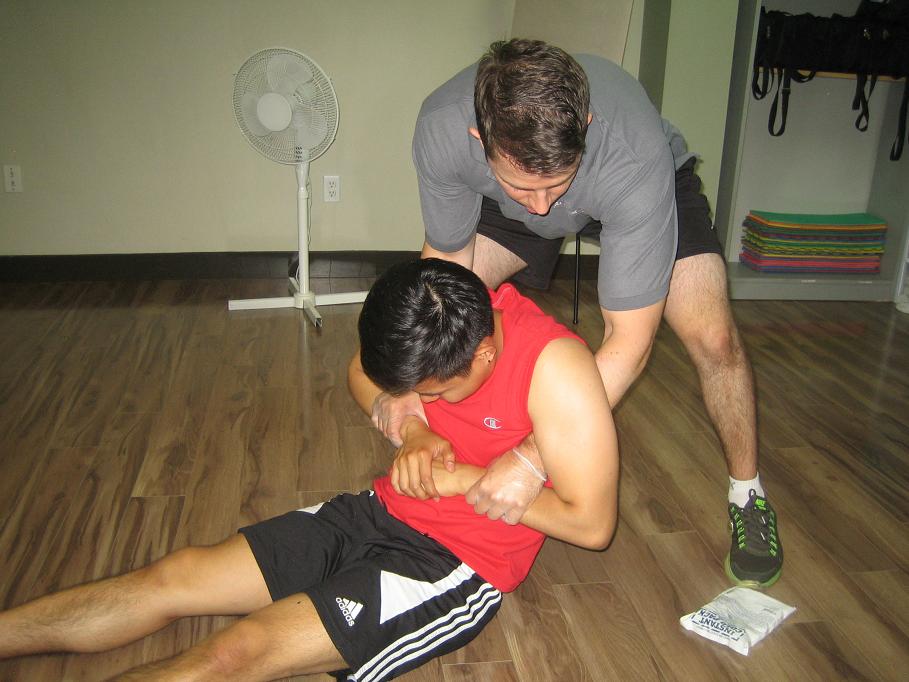Food poisoning is one of the most common types of food related illness affecting thousands of people around the world every single day. While its severity varies, food poisoning is characterized by similar symptoms and conditions. Food poisoning is caused by a certain bacteria in the food that causes the body to reject it. Salmonella and other food contaminants are usually the cause of food poisoning. It is usually felt in less than an hour after the body starts to digest the food.
In most cases, the administration of some basic first aid to the victim will help prevent the more serious complications of food poisoning. A basic first aid education will come very useful whenever someone becomes a victim of food poisoning and it can help make a big difference in saving the life of a person who is at risk of death due to poisoning.
Symptoms of Food Poisoning
Identifying the symptoms of food poisoning will help you react appropriately to the situation in order to help. Here are the most common manifestations of food poisoning that you should look for:

- Stomach pain
Stomach pain is one of the initial symptoms of food poisoning. This is when the bacteria ingested starts to affect the body.
- Vomiting
Vomiting is the body’s natural reaction to food poisoning. This is also a good sign as vomiting will remove the food in your stomach, thus enabling your body’s system to withdraw the bacteria out of the body.
- Dizziness
A person who experiences food poisoning can relentlessly feel dizziness or lightheadedness. This is the result of the toxic content of the food crippling your immune system. A person may feel the need to lie down during this period.
- Rashes
Food poisoning can cause rashes and itchiness to occur. These symptoms are commonly present among people who have food allergies, however, symptoms can also appear to a person suffering from food poisoning.
- Palpitations or a rapid heartbeat
The body’s immune system is extensively fighting the poison that causes the body to be physically stressed out. This is when your heartbeat falls to an abnormal palpitation.
- Clammy hands
This is the body’s way of releasing the toxins in the body. It is also a sign of anxiety that usually occurs to a person who is a victim of food poisoning.
- Loose bowel movement
Over time, food poisoning can lead to a loose bowel movement. During this time, a person can lose enough body liquid that can lead to dehydration. Drink lots of fluid to make sure you are fully hydrated.
Immediate relief for food poisoning
- Lay down the person in a comfortable position
- Apply cold compress to the forehead to relieve nausea and dizziness
- Let the person throw up. This is a good sign as the toxic food is being taken out of their system.
- If the person is having a loose bowel movement, make sure to give lots of fluids to keep the body hydrated.
- Do not let the person take any kind of food, or administer any oral treatment, this can complicate the illness.
Most cases of food poisoning can be treated at home. If you know how to apply home remedies, you don’t have to stress yourself running to the emergency room to obtain the proper medical treatment for a mild food poisoning. However, in severe cases, it is important to see your doctor right away.
Reference:
WebMD. Food Poisoning. Retrieved on July 14, 2014 from http://www.webmd.com/food-recipes/food-poisoning/food-poisoning
